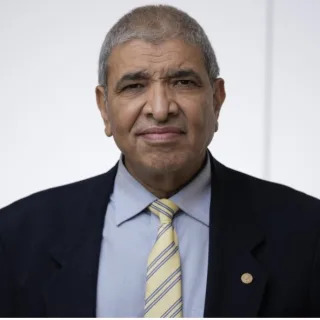IMG Counselor
Your AI-powered guide for International Medical Graduate applications
Search for IMG Related Information
About IMG Counselor
Welcome to IMG Counselor, your trusted companion in navigating the complex journey of International Medical Graduate (IMG) applications. Founded with a vision to empower aspiring medical professionals, we are led by esteemed medical educator and mentor, Dr. Ranjodh Gill.
Founder
 Ranjodh Gill, MD, FACE, FACP
Ranjodh Gill, MD, FACE, FACP
Professor Emeritus in Medicine and Surgery
Virginia Commonwealth School of Medicine
Department of Medicine, Division of Endocrinology
1201 Broad Rock Boulevard
Richmond, Virginia 23249
Email: rsgill@vcu.edu, rane.s.gill@gmail.com
Phone: 1-804-539-7420
LinkedIn: View Profile
Dr. Gill brings decades of experience in medical education and clinical practice, with a passion for guiding International Medical Graduates toward successful residency matches. His expertise in endocrinology and commitment to mentorship ensure that IMG Counselor provides authoritative and compassionate guidance.
Our Mission
We aim to simplify the residency application process for IMGs, helping you secure your desired medical residency positions while minimizing application costs. Our AI-powered platform delivers personalized guidance, enabling informed decisions to maximize your chances of success.
What We Offer
• Smart Application Strategy: Personalized recommendations on residency programs tailored to your unique profile.
• Cost Optimization: Save on application fees by targeting programs with the highest match potential.
• Real-time Guidance: 24/7 AI-powered assistant to answer your IMG-related questions.
• Success Analytics: Data-driven insights to refine and strengthen your application strategy.
Our Edge
Navigating the residency application process can be daunting and costly. IMG Counselor combines cutting-edge AI technology with expert medical knowledge to provide targeted advice. Our approach has helped thousands of IMGs save on application fees and successfully match into their preferred residency programs.
Join our community and let us guide you toward a successful medical career in the United States.
Our Roadmap
At IMG Counselor, we are committed to evolving our platform to better serve International Medical Graduates (IMGs) on their journey to a successful medical career in the United States. Below is our planned roadmap, sequenced by priority levels, outlining key features we aim to introduce. We value your input—submit suggestions to shape our future!
Submit Your Suggestions
Have an idea or feature request? Share it with us! Include your name and email for follow-up (e.g., "Ranjeet@example.com: Please add export to PDF feature").
Planned Features by Priority
Journey to Medical Career
Priority: Essential - Guide for initial steps and certifications.
- Understand ECFMG certification requirements
- Learn about USMLE Step 1 and Step 2 CK
- Get tips for document preparation and verification
Application Cycle
Priority: High - Tools for ERAS timelines and strategies.
- Personalized ERAS timeline and reminders
- Checklist for required documents
- Tips for program selection and application strategy
Match
Priority: High - Support for NRMP Match and mock interviews.
- Mock interview resources
- Ranking strategy tips
- Understanding the Match timeline
Scramble or SOAP
Priority: Medium - Assistance for post-Match positions.
- Step-by-step SOAP process
- Tips for quick document preparation
- Common pitfalls and how to avoid them
Residency
Priority: Medium - Resources and mentorship during residency.
- Mentorship programs
- Residency survival tips
- Resource links for residents
Fellowship
Priority: Medium - Guidance for subspecialty applications.
- Fellowship application checklist
- Timeline planning
- Advice from successful fellows
Spousal and Family Help
Priority: Future - Support for visa and relocation.
- Visa options for families
- Relocation checklists
- Support groups and resources
Recruiters and Visa
Priority: Future - Advice on visa and recruiter connections.
- List of reputable recruiters
- Visa types and requirements
- Tips for job searching as an IMG
Networking
Priority: Future - Platform to connect with peers.
- Online networking platforms
- Events and conferences
- Peer support groups
Creating Database and Social Networking
Priority: Future - Resource database and networking feature.
- Resource database access
- Social networking features
- Collaboration tools
Interactive Cafe
Priority: Future - Virtual space for discussions.
- Live chat rooms
- Discussion boards
- Community events
Vote for Your Priorities
Help us prioritize by reviewing the features we’d like to see implemented soonest.
IMG Counselor FAQ
Comprehensive guide for International Medical Graduates
ECFMG Certification & Basic Eligibility
USMLE Exams
US Clinical Experience (USCE)
Application Process (ERAS)
Interview Process & Match
Visas for Residency
Contact Us
Have questions, suggestions, or need support? We'd love to hear from you!
Other Ways to Reach Us
Contact Person: Ranjodh Gill, MD, FACE, FACP
Email: rsgill@vcu.edu, rane.s.gill@gmail.com
Phone: 1-804-539-7420
Address: Department of Medicine, Division of Endocrinology, Virginia Commonwealth School of Medicine, 1201 Broad Rock Boulevard, Richmond, Virginia 23249
LinkedIn: View Profile
Response Time: We typically respond within 24 hours
Business Hours: Monday - Friday, 9 AM - 6 PM EST